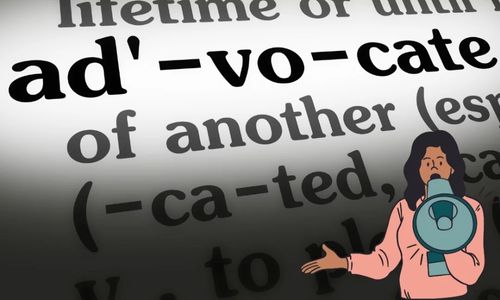Speaking up for your wants and needs
Self-advocacy is defined as the, “ability to assertively state wants, needs and rights, determine and pursue needed supports, and conduct your own affairs,” (Izzo & Lamb, 2002). While this is a short definition, there is a lot to unpack in terms of the skills needed to self-advocate successfully. There are core skills needed for each of the components of self-advocacy.
Core Skills to Self-Advocate
-
-
Goal Setting
The ability to set goals, whether short term, long term, or even life long, is essential for self-advocacy. If there isn’t a goal to work towards, you are not able to inform wants or needs. The “wanting” or “needing” of something is in relation to some goal being pursued.
-
Metacognition
Metacognition, or thinking about how you think, helps inform our wants and needs. Without the building up of metacognitive skills and strategies, an individual’s ability to proactively identify problems will be inhibited.
-
Self-monitoring
Self-monitoring, or the awareness of one’s progression towards a goal or outcome, informs self-advocacy because it is the feedback loop that helps identify problems or challenges that may call for outside support.
-
Problem-Solving
Problem solving is a process that involves recognizing a problem, identifying potential solutions, strategy implementation, and evaluating the effectiveness of the strategy. Key to the self-advocacy process is the ability to identify when you are able to solve a problem independently, or when you may need outside assistance that you will need to advocate for.
-
Social Communication
Self-advocacy is inherently a social skill. Learning the social communication skills needed to “state” and pursue needed supports is essential for learning to self-advocate. Autism Spectrum Disorders are characterized by “persistent deficits in social communication and social interaction” (APA, 2013), and focus on these skills can enable the whole process to actually occur.
-
-
Planning and Previewing
While problem solving skills can address problems proactively, through planning and previewing strategies, individuals can learn to proactively identify potential problems. This taps into metacognitive skills as well.
-
Comprehension of Rights
Advocacy is not just about what you want and need, but also requires a base knowledge of what you are entitled too. Teaching individuals what their rights are in various contexts (e.g. academia, workplace, or other entitlements) gives the foundation for identifying opportunities for self-advocacy.
-
Persistence of Effort
Any advocate can illuminate on the need for persistent pursuing of what one is owed. Teaching the when and how of persistency of effort enables individuals to better identify where longer-term outcomes may require continual effort.
Self-Advocacy in Action
These core skills provide the foundation for self-advocacy to occur. It is important to bring it all together. Self-advocacy isn’t any one thing; it is a concept of multiple actions that people take to advance themselves toward their goals. Self-advocacy is an inherent social act where individuals identify some aspect of their pursuit of a goal that they are unable to do without some outside intervention. This is not to say they are not doing this independently, rather it is a sign of success of knowing when and how you need to pull in additional resources to get across the finish line.
Lastly, if you are reading this and thinking that this only applies to those who have some form of disabilities, think again. Self-advocacy is an essential skill for everyone and is something that we can all learn to do better.





